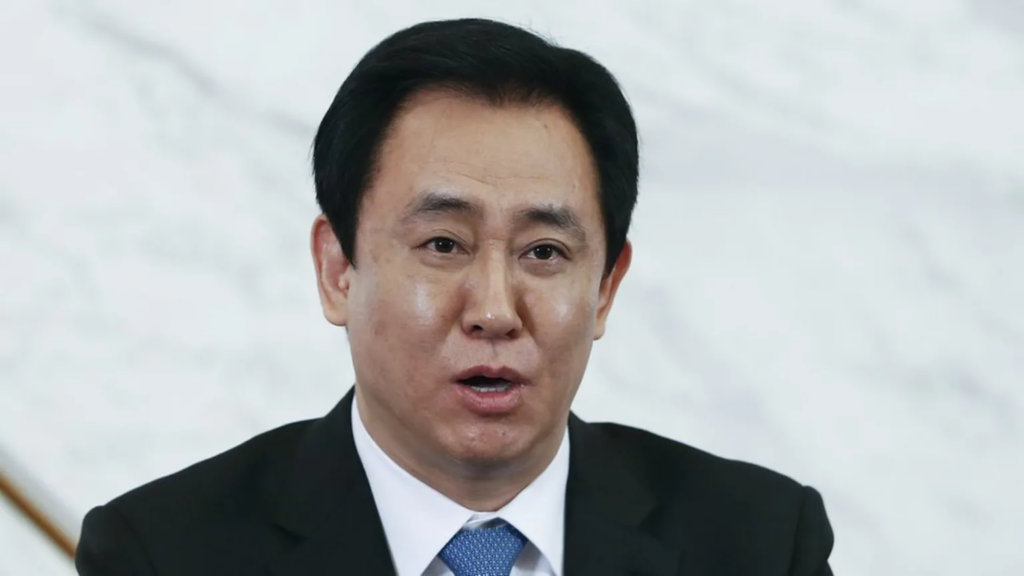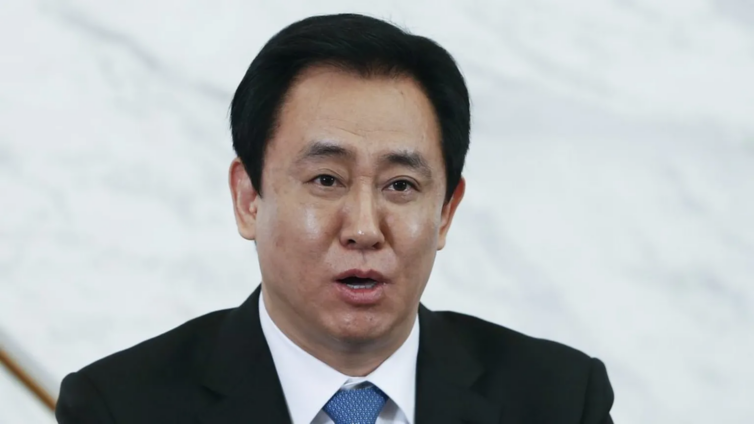Struggling Chinese property giant Evergrande and its founder, Hui Ka Yan, have been accused of inflating revenues by $78bn (£61.6bn) in the two years before the firm defaulted on its debt.
The country's financial markets regulator has fined the company's mainland business Hengda Real Estate $583.5m.
Mr Hui also faces being banned for life from China's financial markets.
In January, Evergrande was ordered to liquidate by a Hong Kong court.
The China Securities Regulatory Commission (CSRC) laid much of the blame on Mr Hui, who was once China's richest man, for allegedly instructing staff to "falsely inflate" Hengda's annual results in 2019 and 2020.
Mr Hui was also fined $6.5m, according to a filing by the company to the Shenzhen and Shanghai stock exchanges.
Evergrande did not immediately respond to a BBC request for comment.

Last September, Mr Hui who is also the company's chairman was put under police surveillance as he was investigated over suspected "illegal crimes".
The announcement comes days after the CSRC vowed to crack down on securities fraud, and protect small investors with "teeth and horns".
Evergrande has been the poster child of China's real estate crisis with more than $300bn of debt.
Liquidators have been appointed to look at Evergrande's overall financial position and identify potential restructuring strategies.
That could include seizing and selling off assets, so that the proceeds can be used to repay outstanding debts.
However, the Chinese government may be reluctant to see work halt on property developments in China, where many would-be homeowners are waiting for homes they have already paid for.
Problems in China's property market are having a major impact as the sector accounts for around a third of the world's second largest economy.
The industry has been facing a major financial squeeze since 2021, when authorities introduced measures to curb the amount big real estate developers could borrow.
Since then several large property firms have defaulted on their debts.
On Monday, official data showed that property investment in China fell 9% in January and February from a year ago.
New construction starts also dropped by 30% which was their their worst fall in more than a year.
Latest Stories
-
Asubuasu residents protest normadic herdsmen after arrest of 3 farmers for allegedly killing cattle
3 minutes -
GNCCI Council urges pro-business reforms and policies for local businesses in the 2025 budget
12 minutes -
Our economic survival hinges on your critical role – Western Regional Minister tells Ghana Navy
27 minutes -
Lekzy wows patrons of Daddy Lumba’s Val’s Day concert with exceptional emceeing skills
38 minutes -
Western regional Minister commends Naval Command for protecting territorial waters
41 minutes -
Western Regional Minister charges assemblies to tackle sanitation challenges amidst cholera outbreak
53 minutes -
Christian Atsu Foundation to be launched in honour of late Ghana international
60 minutes -
Inaki Williams condemns Espanyol fans for racist abuse, calls for punishment
1 hour -
Kofi Mole is the best rapper in Ghana – Skonti
1 hour -
Western Regional minister Joseph Nelson commits to illegal mining fight
1 hour -
GFA charges Nduom over alleged misconduct in Elmina Sharks game against Swedru All Blacks
1 hour -
I had to put my career on hold for Kwaw Kese – Skonti
1 hour -
Scrap 20% excise tax on sweetened beverages to support 24-hour economy, AGI urges gov’t
1 hour -
Anloga residents rally behind Joseph Agbeko Kpogo for MCE position
1 hour -
Big Chef Junior Season 4: Date for entries extended
2 hours

